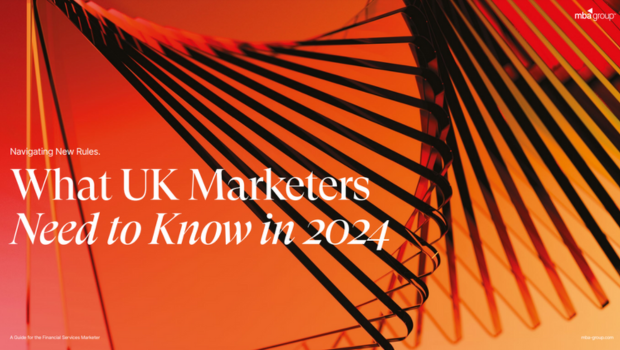Smart use of data and personalised communications boost consumer trust
29 Jan 2014
Marketers representing some of the UK’s leading brands have predicted that personalisation and issues around relevance in communication will be the biggest marketing trend in 2014, according to a Trends to watch article that ran in Marketing Week before the New Year. I agree. Anyone involved in data, direct and digital marketing has seen this trend pick up pace as consumer expectations in this area have grown in the digital age.
56% of consumers say they would be more inclined to buy from a retailer if it offered a good personalised experience, according to research quoted in the article. The research (O2’s The Rise of Me-tail study) also indicated that this could lift sales by 7.8%. The O2 findings dovetail with research (The Two Sides of Consumer Trust) by my own company, Transactis, which found that an effective degree of personalisation – particularly in terms of timing – can play a huge role in lifting sales and building a profitable ongoing relationship with customers.
Smart use of data boosts customer loyalty
The report (published in November 2013) shows that employing data to achieve a high level of personalisation in marketing communications is already critical to customer loyalty while failure to reflect a previous relationship with a customer, knowledge of their needs and instructions on their preferences can have a devastating impact on customer loyalty.
61% of the 1,000-plus consumers surveyed say that if a company they deal with continually sends them irrelevant communications that do not take into account information that it should have, they would probably stop purchasing from that firm.
63% of the consumers surveyed say they would spend more money with a company that uses their data to create relevant offers and a good service and 59% say they would buy more regularly from a brand that does so. This shows that employing data to effectively tailor marketing messages and inform other interactions acts as a springboard for expanding existing customer relationships.
It’s all about trust… and timing
The report demonstrates that, while trust is enormously important when it comes to getting consumers to part with their cash, the timing element of personalisation is even more crucial. While 42% of consumers say they would probably buy an item without shopping around if they received a fair offer from a company they trust – a healthy enough result in and of itself – that figure jumps to 62% if a trusted brand were to time the offer right. That’s a 50% uplift based on timing alone.
Many consumers today are time-poor and bombarded with information, so when a trusted company talks to them at the right moment with a relevant message that doesn’t waste their time, they are happy to develop the brand-customer relationship further – as the research shows.
Using a full range of available data to understand consumers’ patterns of behaviour enables businesses to respond to that behaviour appropriately – and communications from companies and their brands are more welcomed because they accurately address customers’ needs, actions and preferences.
A high level of personalisation is not only essential to the success of brand communications going forward but to direct and digital communications in general. While guarded about who uses and has access to their personal data, today’s consumers also have high expectations when it comes to businesses interacting with them. Companies that fail to use personal data properly and instead hit consumers with untailored and annoying marketing communications hurt all of us in the industry, as they lead consumers to view all direct and digital marketing with a jaundiced eye.
By DMA guest blogger Lisa Chittenden, Director of Data Strategy, Transactis Ltd





Please login to comment.
Comments